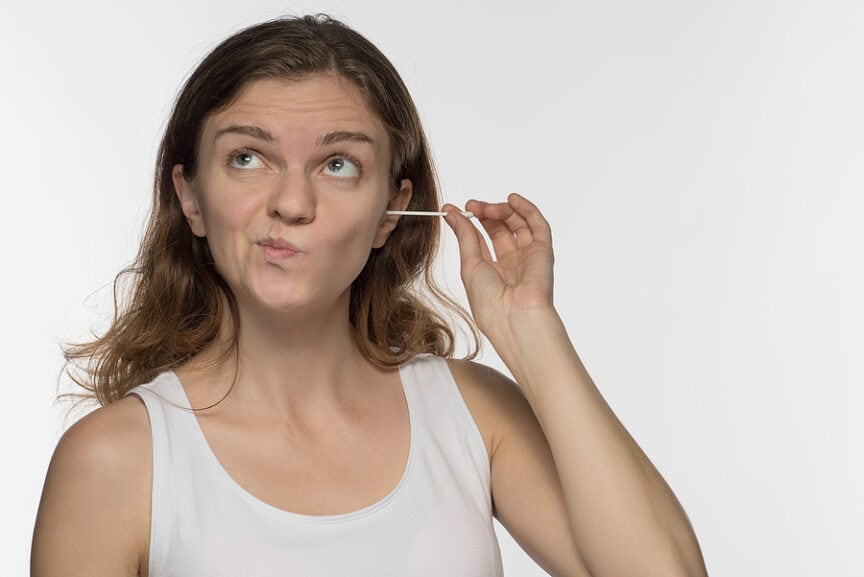Ear wax, known medically as cerumen, is important for maintaining ear health. It safeguards the ear canal by trapping dust, debris, and harmful particles. Also, ear wax has antibacterial properties that help prevent infections. Typically, ear wax naturally moves to the outer ear and flakes away naturally.
The Temptation of DIY Methods
Many people feel tempted to remove ear wax themselves when they experience discomfort or reduced hearing. DIY methods like using cotton swabs, ear candles, or hairpins might seem like quick fixes. However, these methods often do more harm than good. While these tools might remove some wax, they can also push the wax further into the ear canal or cause injury.
The Dangers and Risks of Cotton Swabs and Ear Candling
Cotton swabs are commonly used for ear cleaning, but they can be dangerous. Instead of removing the wax, cotton swabs often push it deeper into the ear canal. This can compact the wax, making it harder to remove and potentially leading to blockages. Deeply lodged wax can cause pain, ringing in the ears (tinnitus), and even temporary hearing loss.
Ear candling is another popular DIY method that can be hazardous. It involves inserting a lit, hollow candle into the ear. Proponents claim it creates a vacuum that draws out ear wax. However, there is no scientific evidence to support this claim. Instead, ear candling can cause burns, ear canal blockages with candle wax, and even punctured ear drums.
Potential for Serious Injuries and Using Safe Alternatives
DIY ear wax removal can result in serious injuries. Using sharp objects like hairpins or tweezers can scratch or cut the delicate skin of the ear canal. In severe cases, they can even puncture the eardrum, leading to pain, infection, and hearing loss. These injuries often require medical treatment and can have long-term effects on hearing health.
There are safe alternatives to DIY ear wax removal that are worth considering. Over-the-counter ear drops designed to soften ear wax can be effective. These drops help the wax move naturally out of the ear without the risks associated with DIY methods. However, if you have a history of ear problems or persistent symptoms, consulting a hearing health professional is always the best option.
The Importance of Professional Care for Maintaining Ear Health
When ear wax becomes a problem, seeking professional care is the safest option. Healthcare providers have the proper tools and expertise to safely remove ear wax. They can use methods like irrigation, suction, or specialized instruments. They can also assess whether the symptoms are due to excessive ear wax or another underlying issue.
Maintaining ear health involves more than just avoiding dangerous DIY methods. Regularly cleaning the outer ear with a washcloth and seeing a healthcare provider for ear-related issues are important. Adopting healthy hearing habits, such as limiting exposure to loud noises and wearing ear protection, also contributes to overall ear health.
Create Awareness and Know When to Seek Help
Educating yourself and others about the dangers of DIY ear wax removal is crucial. Sharing this information can help prevent injuries and protect hearing health. Encouraging friends and family to seek professional care for ear issues promotes safer practices and better health outcomes.
If you experience symptoms like ear pain, ringing, dizziness, or sudden hearing loss, schedule a hearing health exam with a hearing health professional. These symptoms could indicate a more serious condition that requires medical attention. Early intervention can prevent complications and preserve your hearing.
Promoting Regular Hearing Health Exams
Just as with regular dental check-ups, hearing health exams can catch potential problems early. These exams allow healthcare providers to monitor ear health, address any issues, and provide guidance on proper ear care. Prioritizing hearing health can enhance the quality of life and protect against hearing loss.

